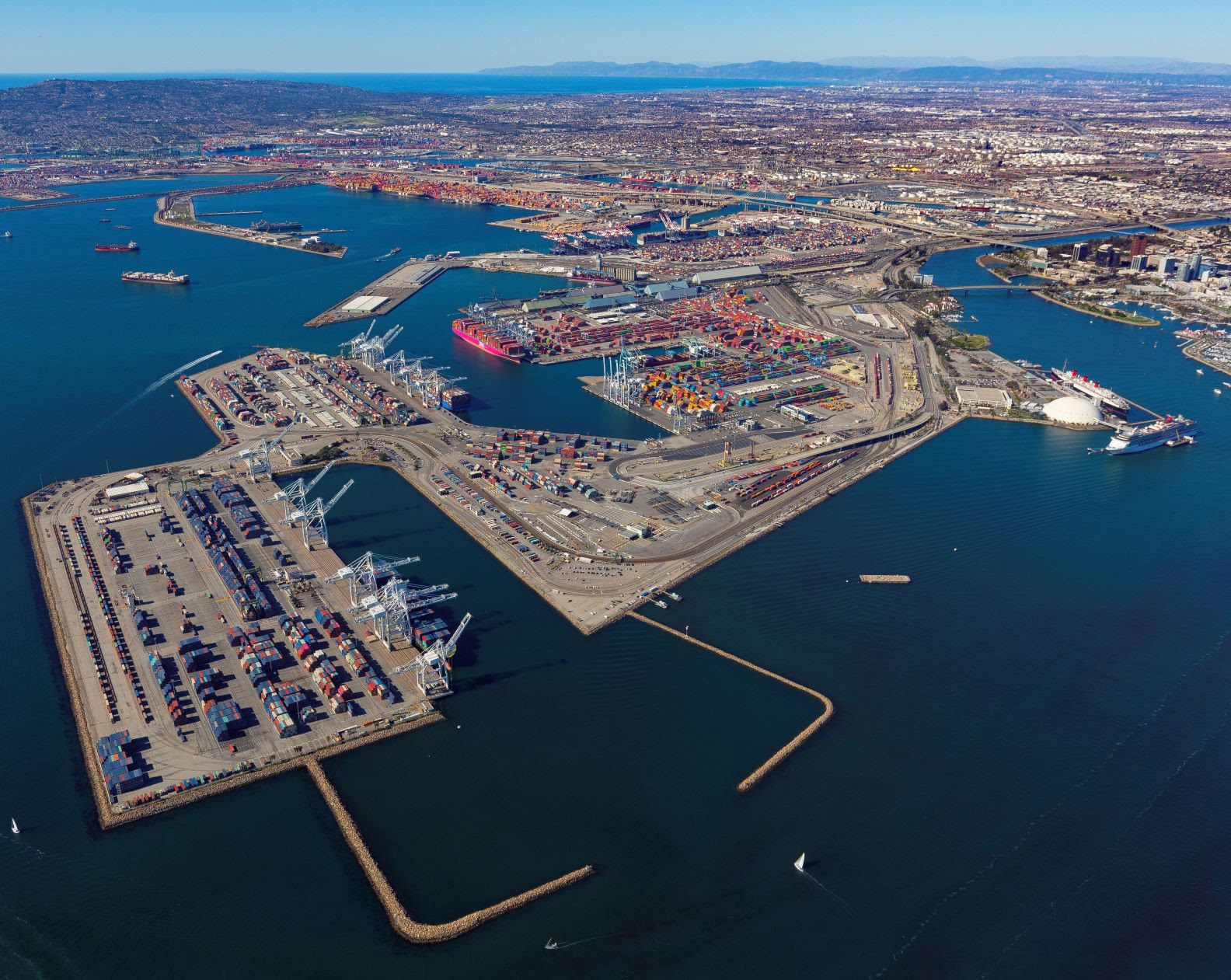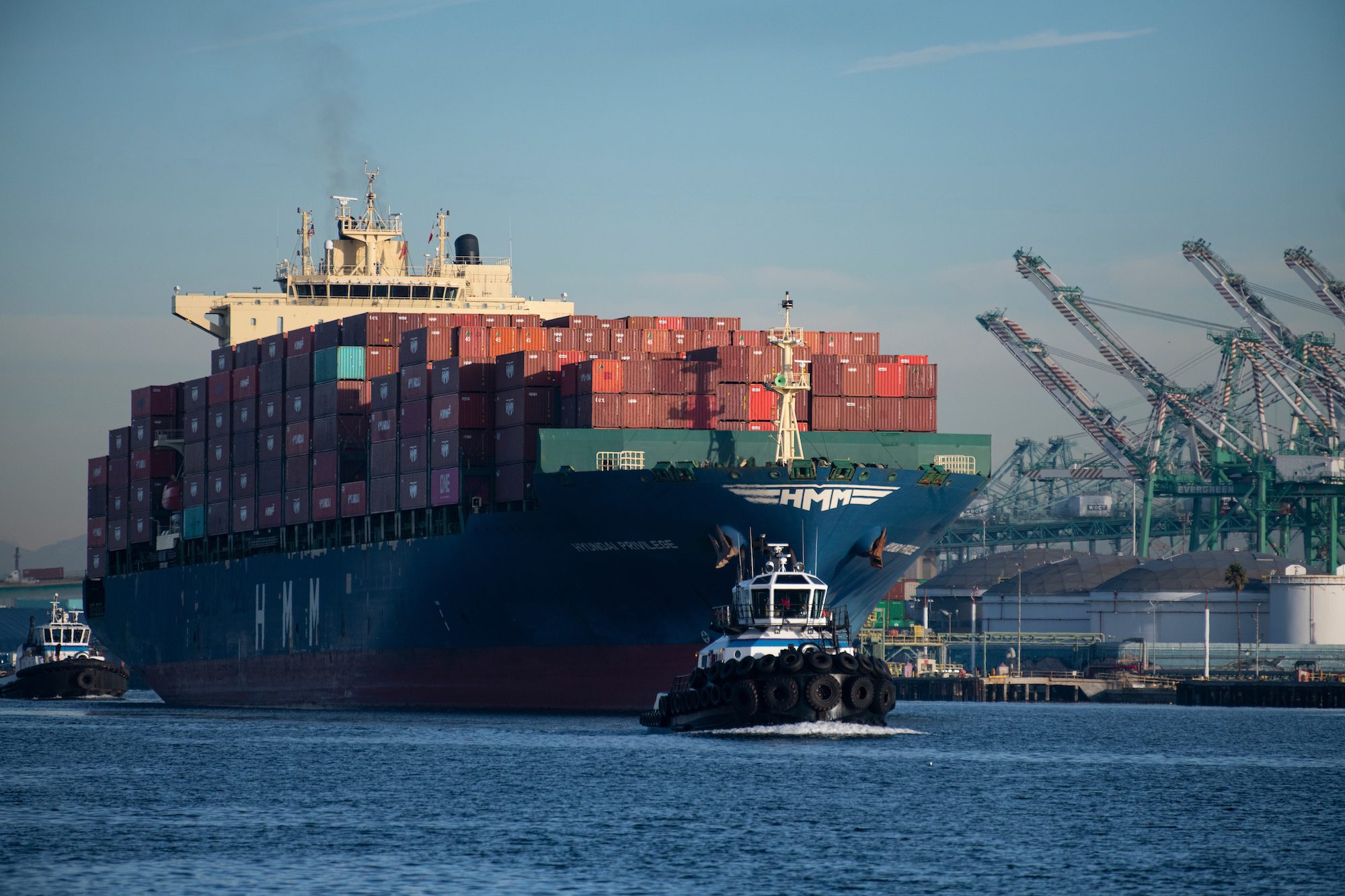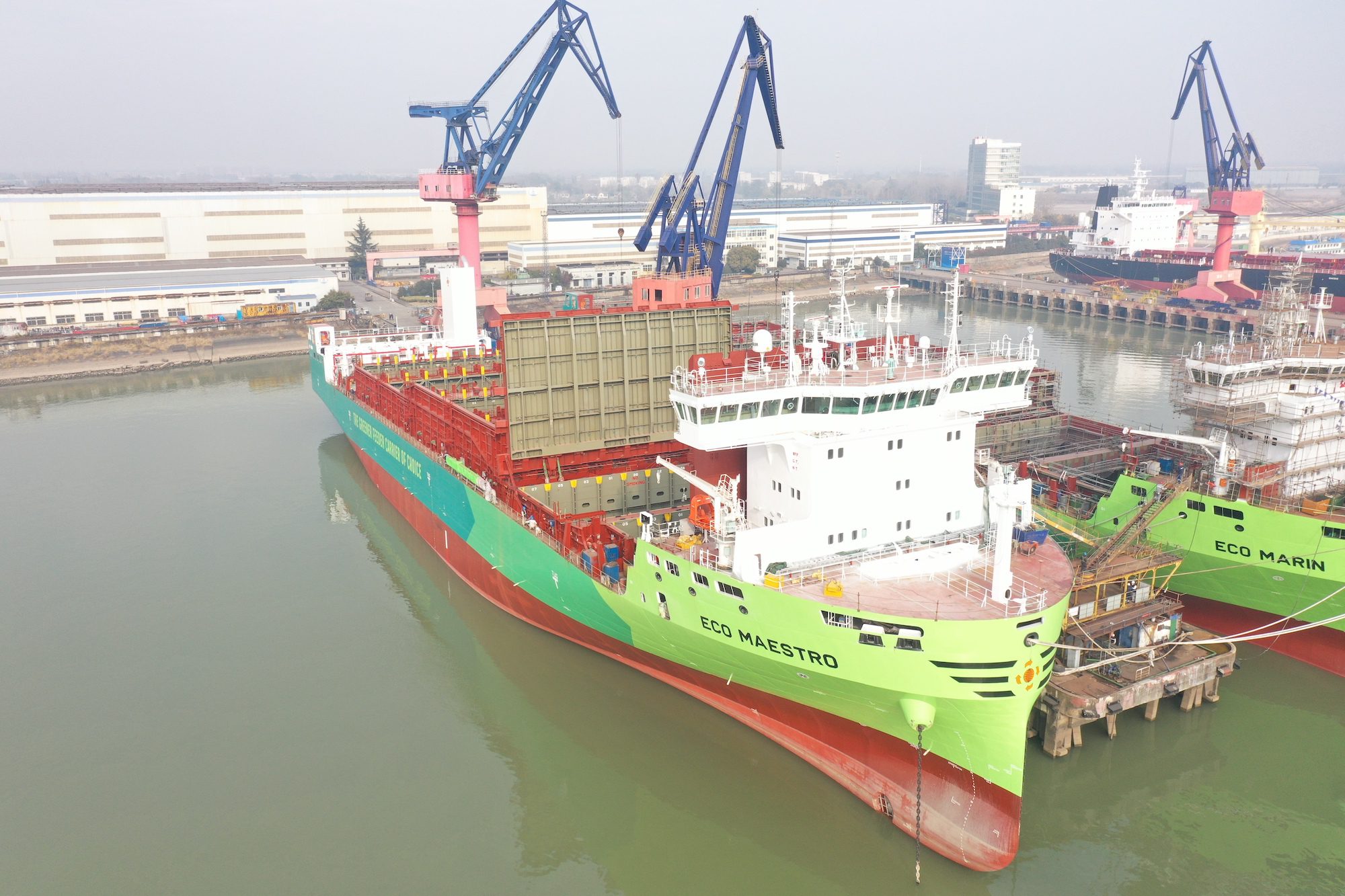The Port of Singapore is partnering with the Port of Los Angeles and Port of Long Beach to establish a “green corridor” to help tackle carbon emissions from shipping between the transpacific port hubs.
The corridor will focus on low- and zero-carbon ship fuels, as well as digital tools to support deployment of low- and zero-carbon ships.
The collaboration is the latest “green shipping corridor” partnership coming after the launch of the “Clydebank Declaration” during a key UN climate conference, COP26, held in Scotland in November 2021. During that summit, a coalition of 19 countries agreed to create zero emissions shipping routes to speed up the decarbonization of the global ocean shipping industry, which accounts for nearly 3% of the world’s CO2 emissions.
The effort also supports the Green Shipping Challenge launched today during the World Leaders’ Summit at the 27th UN Climate Change Conference, COP27, in Sharm el-Sheikh, Egypt, which is being held this week.
The agreement between the Maritime and Port Authority of Singapore (MPA), Port of Long Beach, Port of Los Angeles, and “C40 Cities” climate group, made up of nearly 100 mayors of the world’s leading cities who are working to confront the climate crisis. Similar “green corridors” have already been announced between Los Angeles and Shanghai and Singapore and Rotterdam.
“Reducing greenhouse gas emissions in the maritime supply chain is essential, and this trans-Pacific partnership will help us build a network of ports and key stakeholders to help decarbonize goods movement throughout the Pacific region,” said Port of Los Angeles Executive Director Gene Seroka. “We look forward to coordinating with our partners to develop an implementation plan on this critical initiative.”
Building Green Corridors for Shipping Will Take Teamwork
As hub ports, Singapore, Long Beach, and Los Angeles and will work C40 Cities and other stakeholders in maritime and energy to “accelerate the deployment of low- and zero-carbon emission solutions, identify digital shipping programs, and develop green fuel sources for bunkering to support efficient cargo movement.” The corridor will also aim to catalyze investment in green infrastructure, including zero-carbon energy hubs linked to port and shipping demand.
“Decarbonizing the supply chain is the future of our industry, and partnerships like this on the world’s most important trade route are important for fulfilling that ultimate goal,” said Port of Long Beach Executive Director Mario Cordero. “We’re excited about developing this initiative in the coming months and what it means for making operations more efficient while advancing the fight against global warming.”
“The trans-Pacific corridor is one of the busiest trade routes in the world,” said Teo Eng Dih, Chief Executive of MPA. “Through this corridor, we hope to support the decarbonization of global supply chains, complementing efforts undertaken by the industry and the International Maritime Organization to drive the decarbonization and digital transition for international shipping.”
To mark the Green Shipping Challenge at COP27, green shipping corridors have also been announced between the U.S. and Korea, in consultation with the U.S. Northwest Seaport Alliance and the Port of Busan, the U.S. and Canada on the Great Lakes/Saint Lawrence Seaway, and a “task force” between the U.S. and U.K.
“Accelerating efforts to decarbonize the shipping sector is urgent if we are to limit global warming to 1.5°C,” said C40 Executive Director Mark Watts. “This initiative has the potential to serve a range of carriers and routes by reimagining infrastructure designs and operational best practices, and advancing the feasibility of zero-carbon fuel production, supply, storage and bunkering.”
Editorial Standards · Corrections · About gCaptain

 Join The Club
Join The Club











